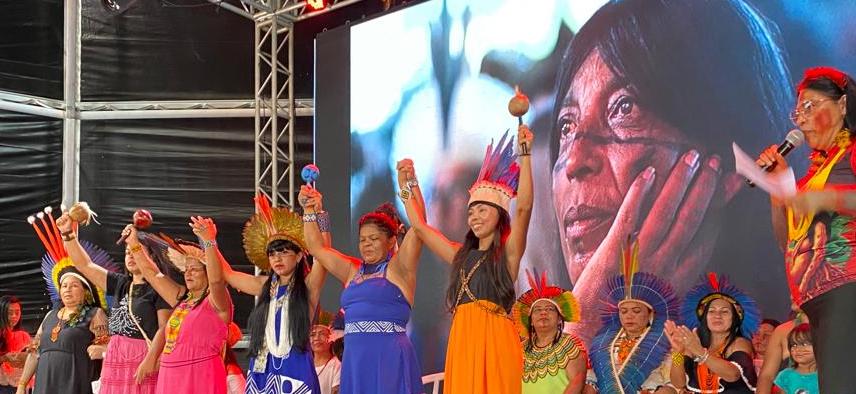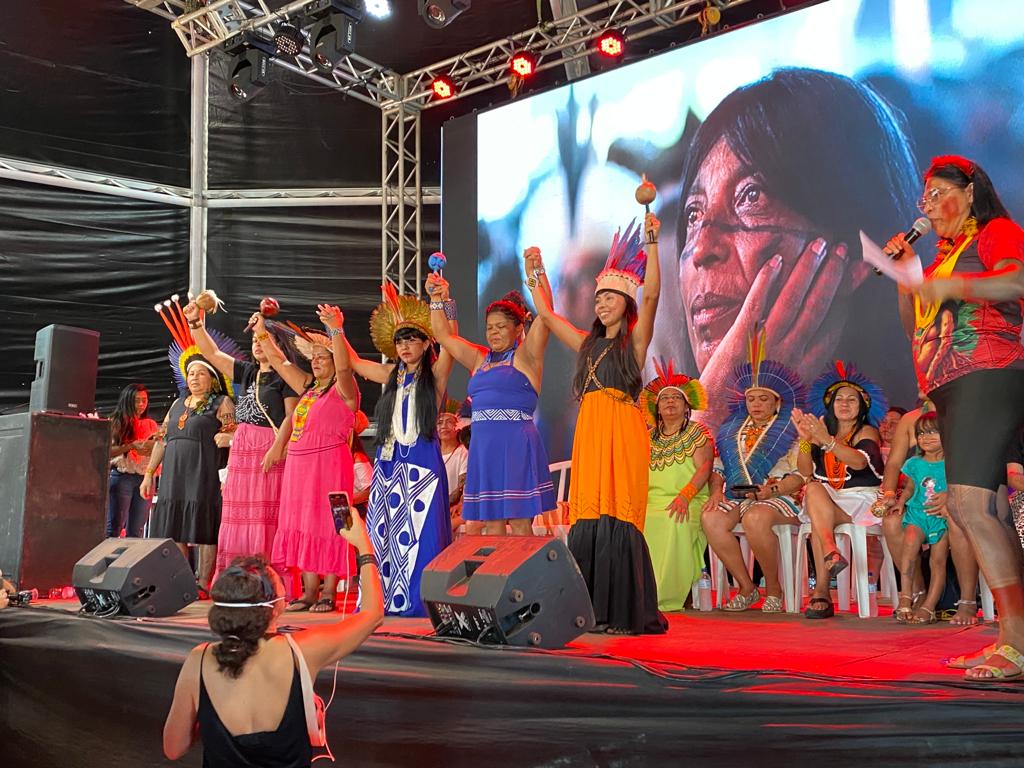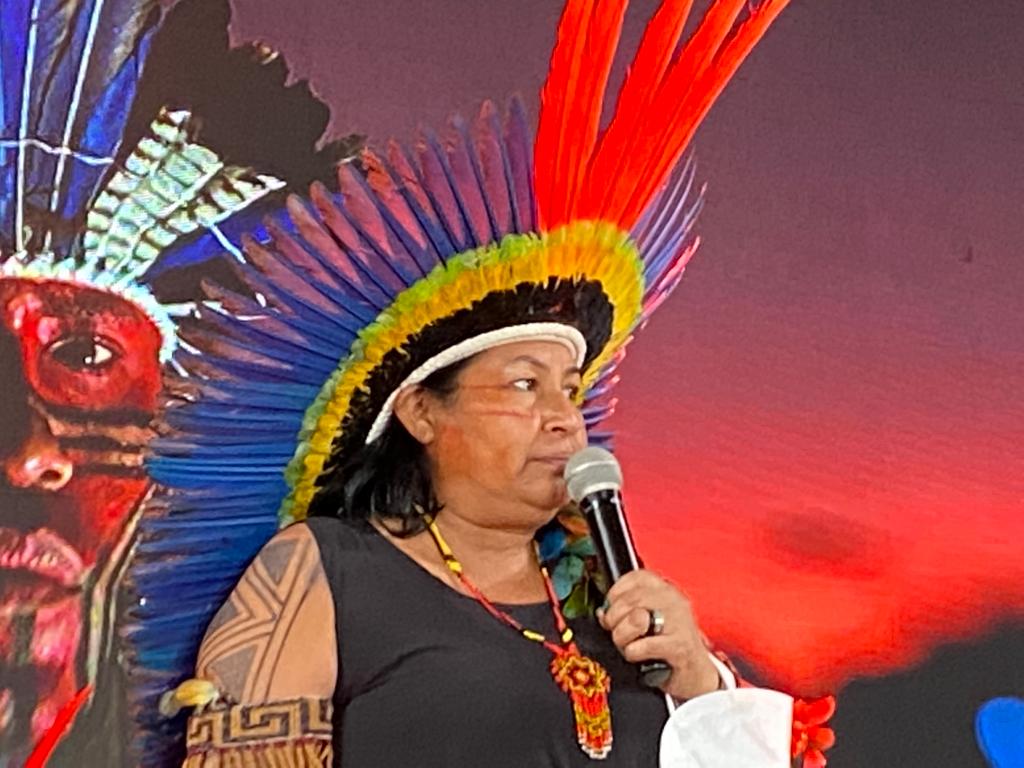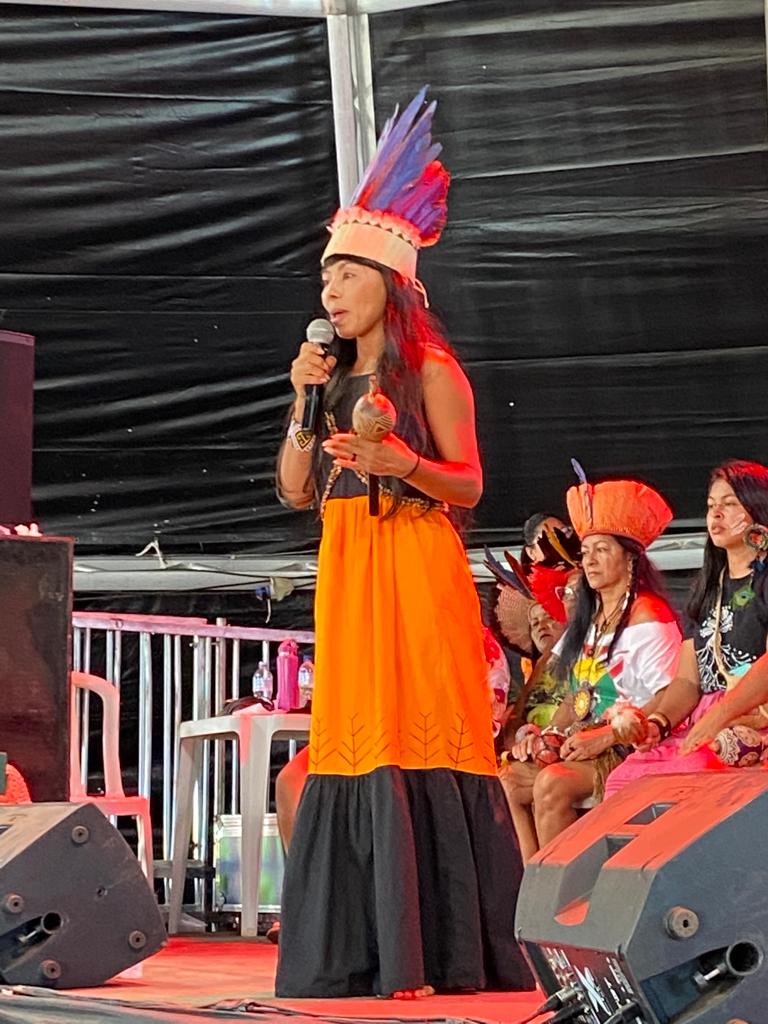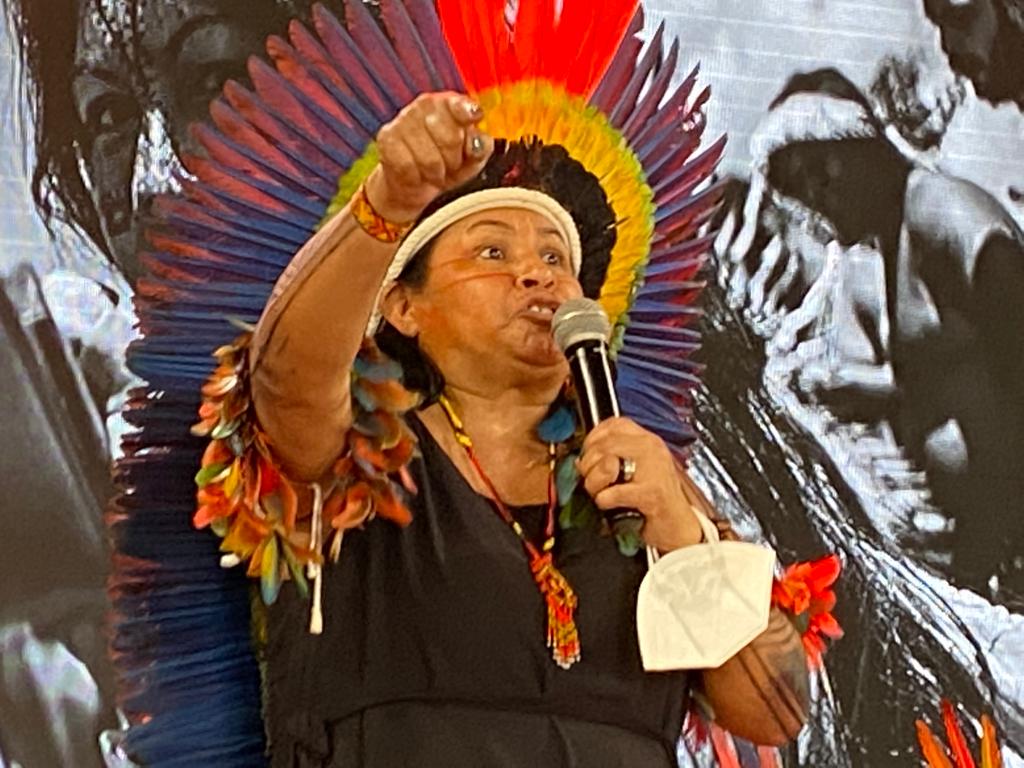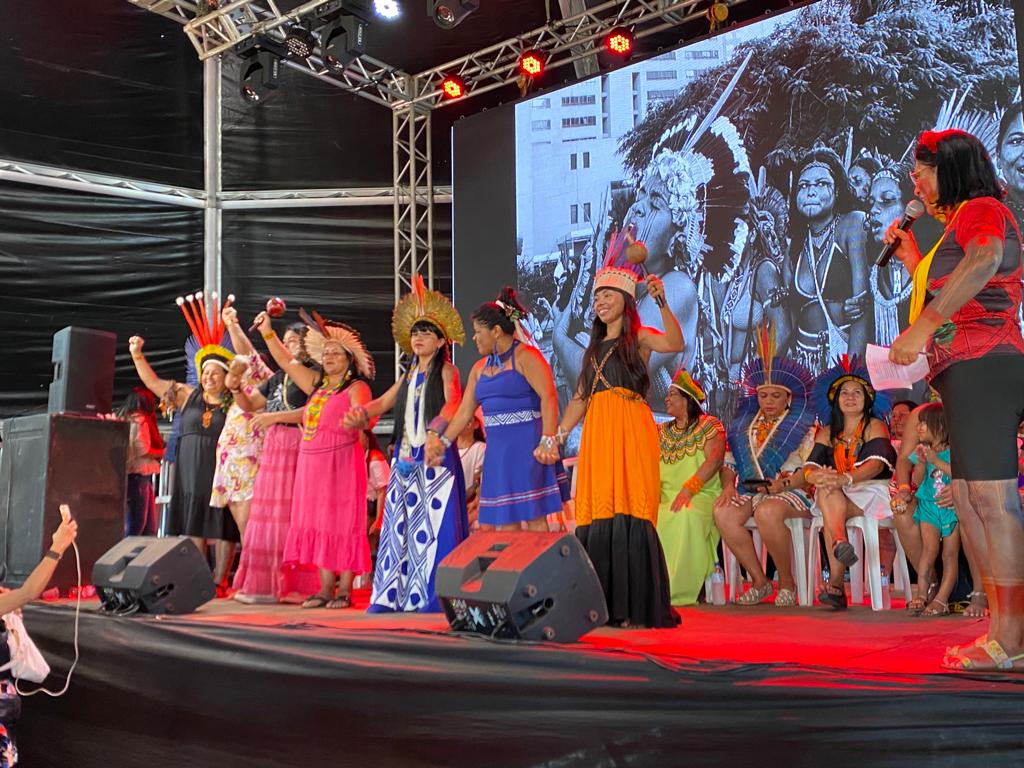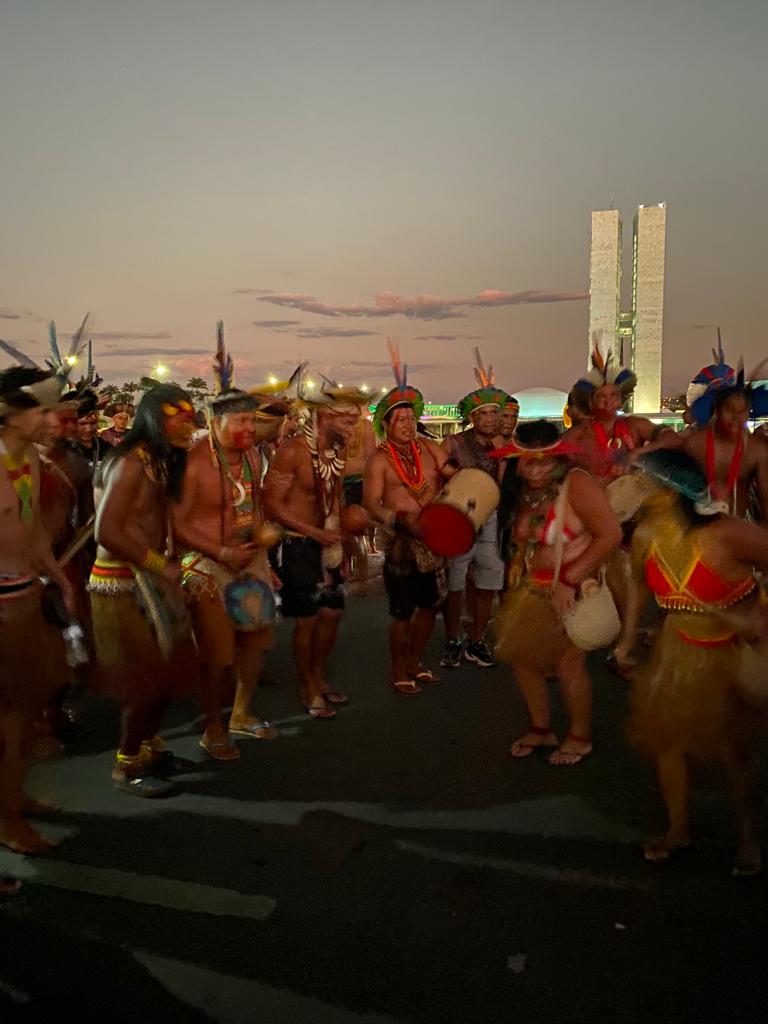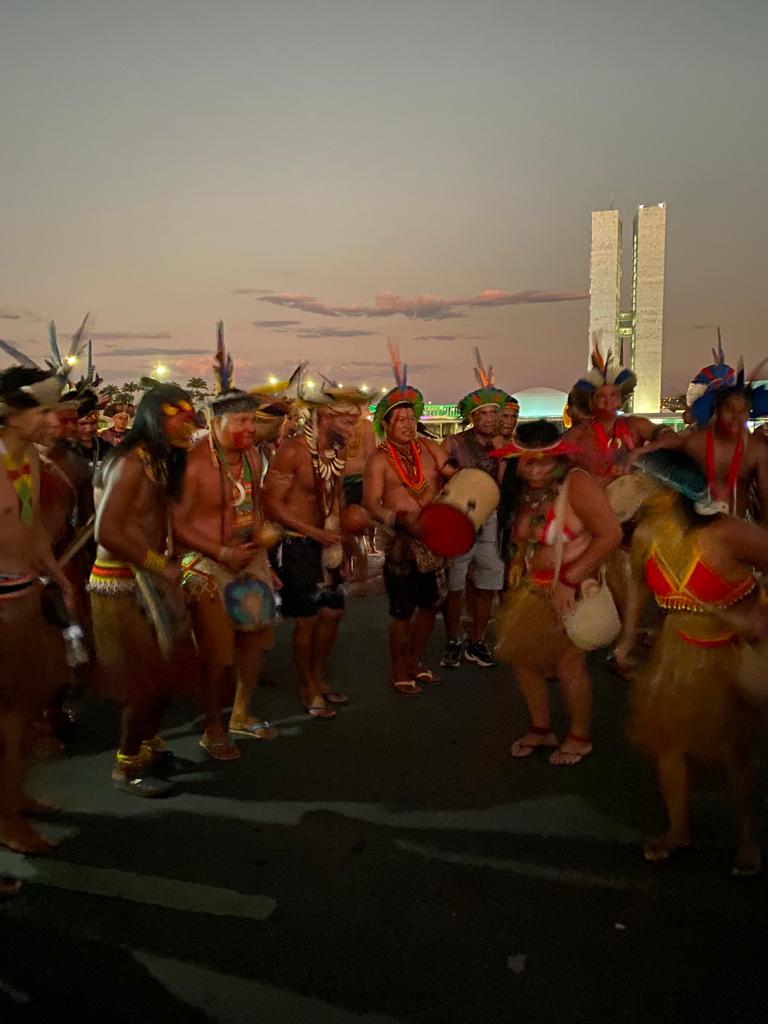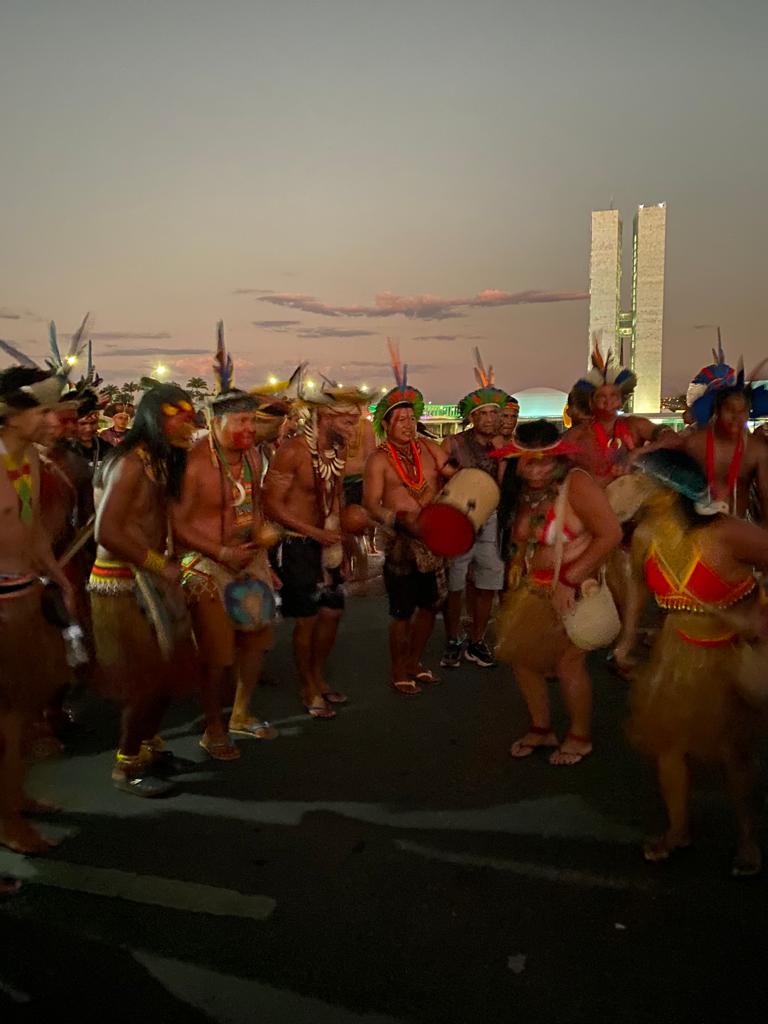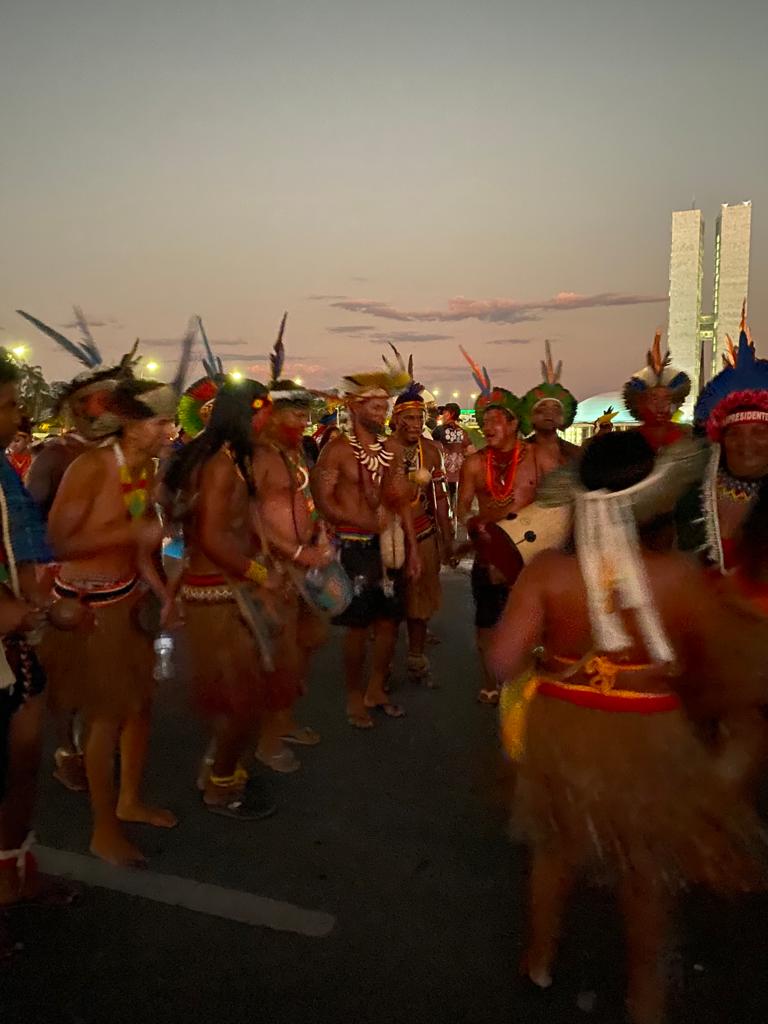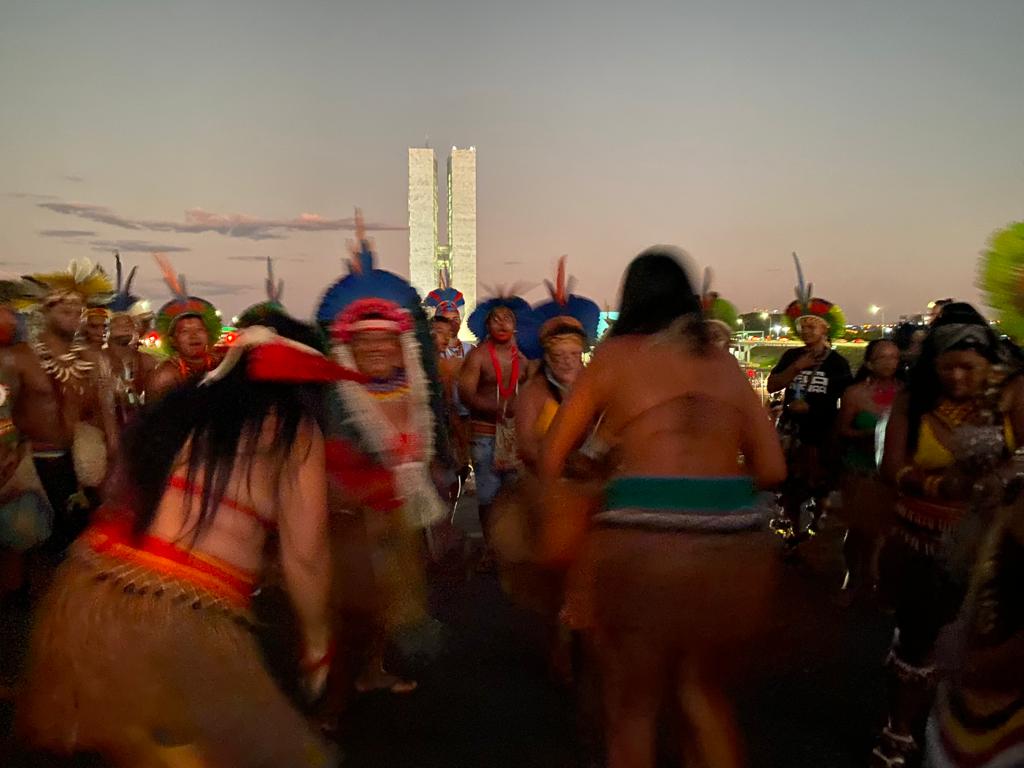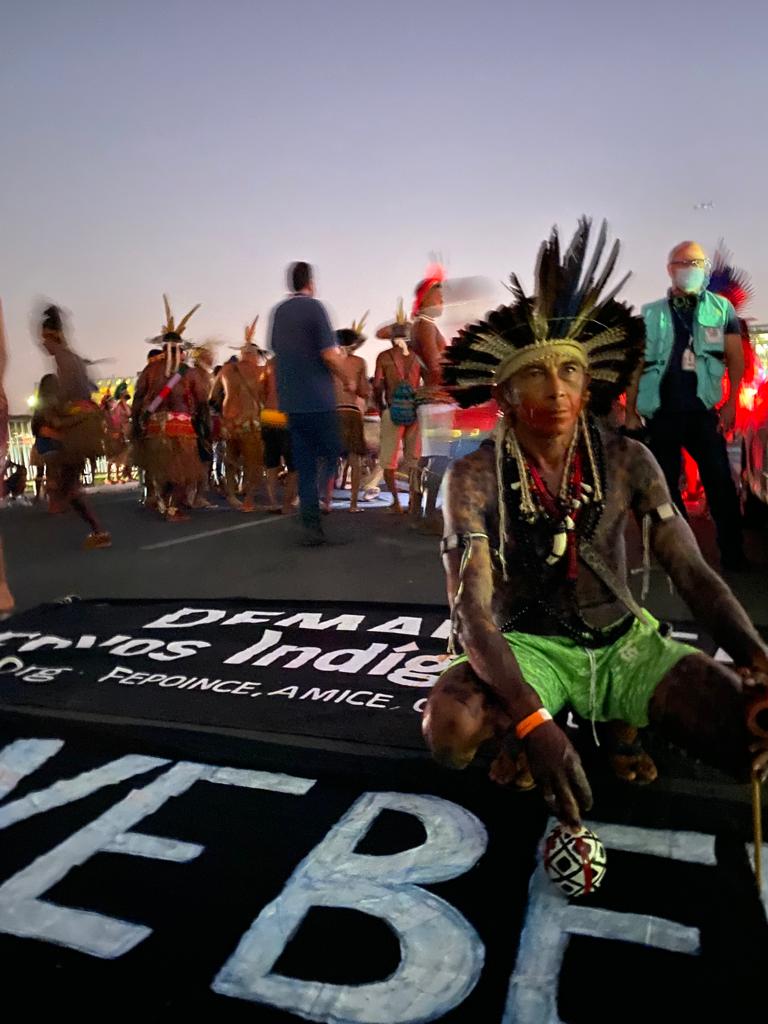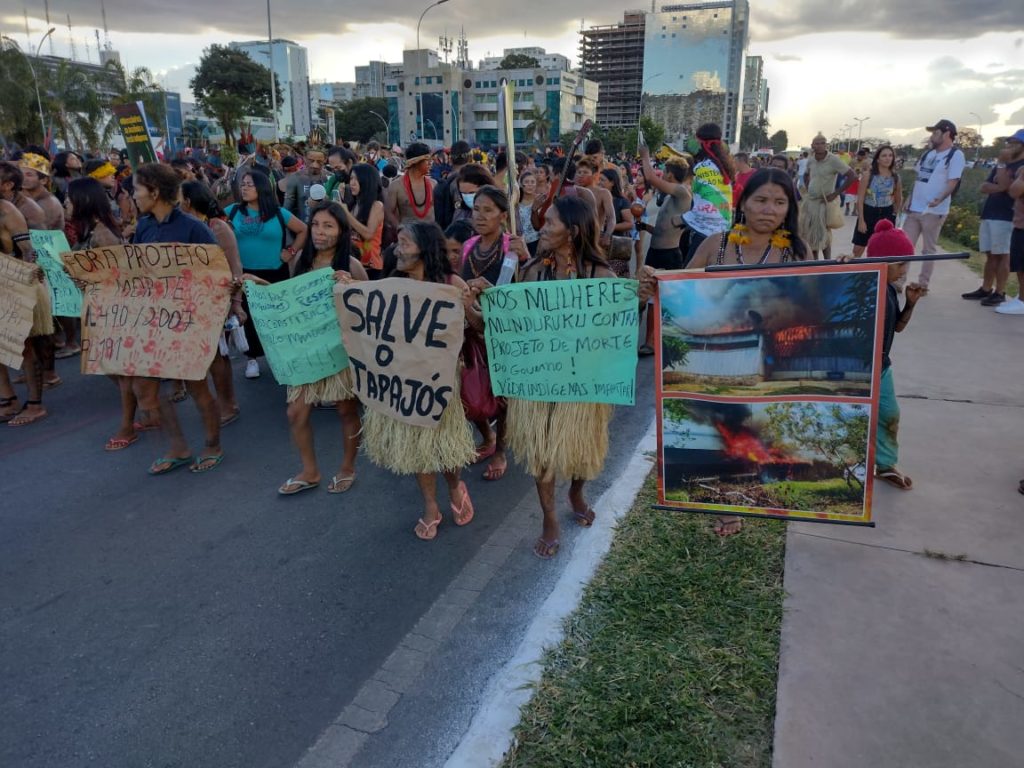By Flavio Montiel – Interim Director International Rivers – Brazil
Brasília (DF) – International Rivers is actively participating in the Acampamento Terra Livre (ATL) in Brasília, which has been taking place since April 4 and will continue until tomorrow, April 14. The ATL brings together more than 6,000 indigenous people from 200 ethnic groups from all regions of Brazil.
Among the most discussed themes is the need for the designation of Indigenous lands and the threats of accelerated mining and gold prospecting as well as new hydroelectric dams planned for the Amazon region. Of particular concern is new legislation, PL 191/20, currently under consideration in the National Congress, which authorizes mining, oil exploration, construction of hydroelectric dams and the planting of soy for export on Indigenous lands. If approved, the law would also grandfather in previously submitted mining exploration applications.
In view of these threats, the ATL is debating alternatives for the well-being of Indigenous communities and public policies aimed at guaranteeing the protection of territories, environmental defenders, and human rights.
International Rivers is involved in all these discussions and in the search for solutions to overcome the serious situation experienced by indigenous groups such as the Munduruku, Yanommami, and Kaiapó, especially with regard to the invasion of mining and the threats of building new hydroelectric dams. We are also discussing collaborative projects aimed at strengthening the actions of women in the face of these threats with Munduruku leaders such as Alessandra Korap.
On April 12, the Brazilian presidential candidate Luiz Inácio Lula da Silva of the Workers’ Party attended the ATL and promised to create an Indigenous Ministry if he is elected. He also warned: “Get ready, because someone will have to assume a ministry that will deal with indigenous issues.” If elected, Lula promised to seek consent of Indigenous populations for any action considered on their lands. The Coalition of Indigenous Peoples of Brazil (APIB), a which organized the ATL, endorsed Lula’s candidacy but not without questioning him about his party’s past administrations in the federal government.
Said APIB indigenous leader Sonia Guajajara, “We are here ready, we are here ready, so that there will be no more Belo Monte in your government. We don’t need Belo Sun. We cannot stay on the sidelines of building this country.” The Belo Monte hydroelectric plant, which the Kaiapó and other Indigenous groups have been protesting since it was proposed in the 1980s, was inaugurated by President Dilma Rousseff of the Workers’ Party a few years before her impeachment in 2016 amid accusations of a kick-back scheme linked to the construction of the mega dam, the fourth largest in the world. Today, the Belo Monte dam, which at top capacity would create a reservoir the size of Chicago, has displaced at least 20,000 people and, at a building cost of R$40 billion (roughly USD $10 million), is currently able to produce about half of the electrical output promised by the developers.
The lack of demarcations of Indigenous lands in the Petista governments and the Belo Monte hydroelectric dam are considered “serious mistakes” by most organizations linked to Indigenous issues. However, these mistakes are eclipsed by the contrast with the measures adopted by the Bolsonaro government, already denounced as genocidal by international organizations.
Another initiative that is being articulated among the Indigenous organizations is the launching of candidacies of at least ten Indigenous women for the National Congress. Among them is Sonia Guajajara as a pre-candidate (running for nomination) for federal deputy for São Paulo, and Célia Xacriabá as a pre-candidate for federal deputy for Minas Gerais.
Also present at the ATL plenary were more than a dozen congressmen from leftist parties in Congress and the District Chamber of Brasília. The highlight was federal deputy Joenia Wapichana, the first and only indigenous woman elected to office. She recalled that since she took office in 2019, there have been countless requests she has made in an attempt to redress acts of state destruction committed in the Jair Bolsonaro government.
Featured photo and other photos by Flavio Montiel

